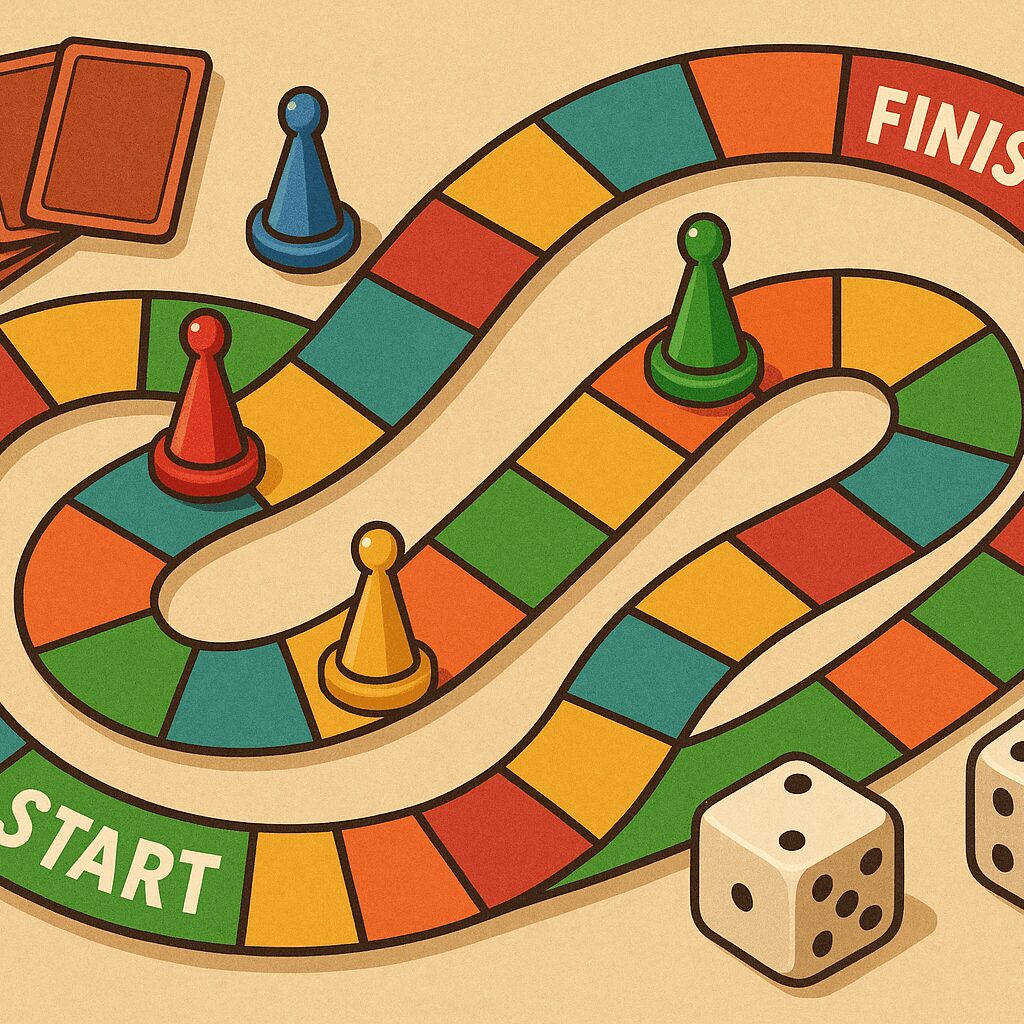Money can be tricky. So can learning about it. When it’s part of a game, learning feels like fun. Board games can teach you how to budget, invest, take risks, and plan—without being boring or hard to understand. It’s very similar to the betting insights from 22Bet, where they all ease your brain and guide you to make a smarter bet.
Monopoly: The Classic That Still Works
Yes, it’s old. Yes, it takes forever. But Monopoly remains a favorite for learning basic financial concepts. You buy properties. You charge rent. You manage cash, take risks, and try to stay out of debt.
The best part? You quickly learn that cash flow matters more than flashy purchases. Owning the right set at the right time can win you the game. It’s a money lesson dressed up in dice and tiny plastic hotels.
The Game of Life: Choices, Consequences, and Cash
Want to teach kids (and even adults) about how life decisions affect finances? Spin the wheel in The Game of Life. Choose a college or a career. Buy a house or skip it. Have a family or go solo.
Each decision affects your path, and so does luck. Life happens. And this game shows how unexpected bills, bonuses, and paydays all play a role. It’s a fun way to understand how jobs, loans, and savings shape our lives.
Payday: Budgeting in a Box
Payday is simple, fast, and full of teachable moments. Players go through one month of income, bills, and surprise expenses. You get a paycheck, pay the mortgage, and maybe pick up a deal or loan.
It’s about budgeting on a monthly cycle, just like real life. Players often walk away saying, “That felt a bit too real,” but they still laugh the whole way through.
Cashflow: Rich Dad’s Game for Smart Adults
Created by Robert Kiyosaki, author of Rich Dad Poor Dad, Cashflow is designed to teach the fundamentals of investing. It’s not a kid’s game—this one dives into stocks, real estate, and financial freedom.
You start with a job and income. Then you make moves to escape the “rat race” by building passive income. It teaches you to look past your paycheck and plan long-term. It’s like Monopoly, but more real and less random.
Power Grid: Money Meets Strategy
In Power Grid, you run an energy company. You buy power plants, manage fuel, and try to supply electricity across cities. Every move costs money, and the prices change based on demand.
It teaches economic concepts like auctions, supply and demand, and market shifts. If you overspend early, you may fall behind. If you invest too late, you miss your chance. It’s not about luck—it’s all strategy.
Why These Games Work (Even If You Don’t Realize It)
When people hear “money education,” they think of boring lessons and math. But games make it fun. They use stories, challenges, and excitement to teach the same skills.
You still learn how to budget, spend wisely, and see the results of your choices. The only difference? You’re enjoying it.
Who Can Learn From These Games?
These games aren’t just for kids. Adults learn just as much—sometimes more—when the pressure of real money is gone. A teenager playing Monopoly sees how risky buying Boardwalk can be. A parent playing Payday might finally see why budgeting is hard.
Even teachers use these games in classrooms to explain finance. The point is simple: people learn best when they don’t know they’re learning.
Tips for Making Game Night Financially Smart
Want to turn game night into a low-key money lesson? Try this:
- Ask kids to explain their money choices aloud.
- Keep a little notebook and jot down funny spending habits.
- Talk about what you’d do differently in real life.
- Don’t point out mistakes—ask questions instead.
You’re not giving a lecture—you’re planting a seed.
Bonus Games Worth Trying
If you’ve already played the big names, here are a few more hidden gems:
- For Sale – A fast-paced game about bidding on houses and flipping them.
- Stockpile – Teaches how insider info and market guessing work.
- Acquire – A strategy game about buying and merging companies.
- Startup Company – A fun game about building a business and staying afloat.
These games aren’t just fun—they sharpen your money smarts, too.
Why Fun Makes Lessons Stick
There’s science behind it. When we’re relaxed, our brains retain information more effectively. That’s why game-based learning works. You’re not scared of getting it “wrong.” You’re just trying to win—or at least not lose.
That pressure-free space helps players of all ages learn without fear. And if you lose some play money along the way? No big deal. You’ll try a better strategy next time.
How Games Build Financial Confidence Without Pressure
When no real money is at risk, people feel free to try bold moves. They might pretend to take a loan, spend big, or skip a payment. It’s safe, so they try things they wouldn’t in real life. This builds confidence and helps them learn about money without fear.
Using Board Games in Classrooms and Family Settings
Teachers and parents are using board games to teach kids about money in ways they actually enjoy and remember. In schools, games like Cashflow or Payday let students learn finance by playing. At home, these games open up conversations about money between kids and adults—no boring lectures needed.



